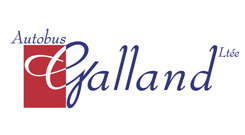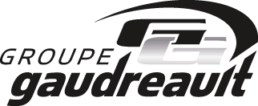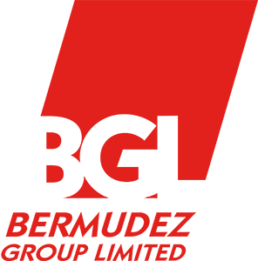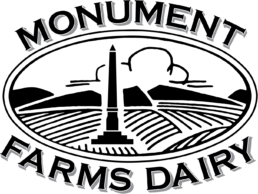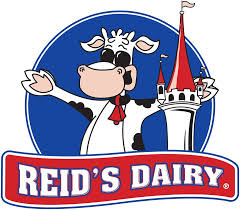The extension of your ERP by excellence, ideal for boosting your productivity!
A powerful middleware that allows you to control and manage the actions of your mobile users.
Find out how our OFFICE software ensures fast and efficient sharing of information between the administration and mobile users.
Companion® Office
A tool that allows managers to analyze the work performed by their mobile staff in real time.
A connected middleware for delivery people with Companion® Route or representatives with Companion® Rep.
Transmitting information to your mobile users while effectively managing the processes apply has never been easier!
Complete information for your ERP
Collect essential information to better document your business processes (surveys, messaging, employee rights and restrictions)
Push the data to your ERP
Automatically synchronize transactional information made by your mobile staff (invoices, orders, credits, etc.) with your ERP.
Support your business decision-making
Empower your managers to make informed choices based on precise data analysis, with powerful and well-documented dynamic dashboards.
For more information on Companion® Office
PDF request - Technical sheet
Download the technical sheet
The strength of our Companion® Route and Companion® Rep solutions lies in the heart of our Companion® Office desktop software.
This powerful module was developed to offer industries the possibility of recording much more complete information than that offered in traditional ERP. Making sure you can make strategic business decisions quickly by always having all the information readily available.
Configure the desktop middleware according to your needs and your industry
- Currency, taxes, languages
- Company information
- Prioritization of information at each level and by type of mobile user
- Mobile user models
- Menus of users or types of users;
- Master files not existing in the ERP: customers, products, prices, promotions, routes.
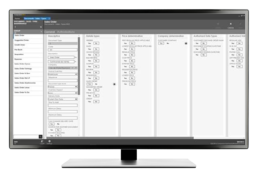
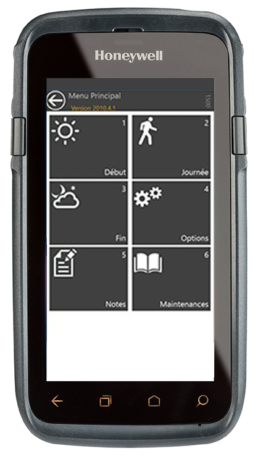
With Companion® Route, plan the tasks and activities of your distributors, drivers, transporters, salespeople.
- Sending messages from the office to delivery people. (Attached to a user, a store, a group of users or stores);
- The sequences of tasks and activities;
- Management of rights and restrictions of mobile users. (For example: Permission to take returns or change prices.)
- The models of documents to be printed on the road (load sheets, invoices, deposit slips);
- The creation of surveys for mobile users.
With Companion® Rep, plan the tasks and activities of your representatives, account managers and merchandisers.
- Indications by the sales management or marketing team, the list of priorities to be carried out in stores by the representatives.
- Hierarchies allowing unparalleled flexibility in application configuration and behavior within the application;
- Workflows, making it possible to customize the way representatives work according to the type of store, banner, geographical location, etc.
- Marketing programs making it possible to manage a multitude of price programs, freebies, promotions.
- Master files not existing in the ERP: customers, products, prices, promotions, routes.
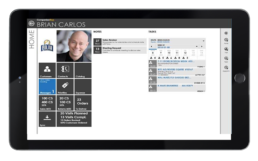
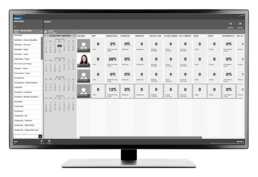
Track, in real time, to better analyze the activities of your mobile staff and the information captured.
- Reports: sales, returns, orders, visits;
- Dynamic real-time dashboards for monitoring the operations and activities of mobile users;
- GPS tracking;
- Archiving of all documents printed on the road including invoices with signatures, stamps and PODs;
- Vehicle inspection;
- Activity responses;
- Inventory of warehouses and trucks.
Our solutions represent an extremely beneficial investment for your business’ growth.
Still need convincing?
Companion® Office is the key module integrated into the Companion® Rep and Companion® Route solutions to configure, manage and share essential information between your mobile staff and the administration in the office.
SFA-CRM
Sales force automation
A modern application to help manage the activities of representatives or merchandisers.
DSD
Direct distribution to points of sale
An efficient software package to promote the management of your route accounts.
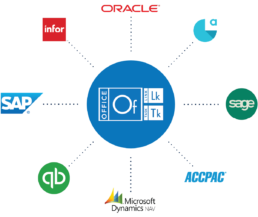
Connects with all types of accounting or ERP software.
Our solutions offer more than traditional ERP data. Benefit from our powerful solutions and gain richer analytics on the information gathered in the field.
Quickbooks | Quickbooks online | Sage 50, 300 AccPac, X3 | Sage 50 | Sage X3 | SAP B1, ECC, S4 | ORACLE | MS Dynamics NAV, Business Central, GP | Infor | Acomba |
MORE ABOUT ERP
The acronym ERP stands for: Enterprise Resource Planning. It’s a complex name that refers to the different processes essential to running a business, including inventory and order management, accounting, human resources, customer relationship management (CRM), and more. Basically, ERP software integrates these different functions into a complete system to streamline processes as well as enterprise-wide information.
ERP systems are used to connect a large amount of information and business processes to facilitate the flow of data between them. By collecting all of the transactional data shared across an organization from different sources, ERP eliminates data duplication and provides data integrity with a single source of truth.
ERP systems are essential to manage thousands of businesses of all sizes and in all industries.
The central feature of all ERP systems is a central but shared database that supports multiple values used in different departments of a company. This means that employees from different teams will have easy access to the same information shared between them in real time to promote efficient communication.
- Collect information on business processes in real time;
- Manage payroll, benefits and employee information;
- Create company-wide strategies;
- Promote the updating of accounts;
- Allow the processing of orders;
- Receive alerts on identified problems;
- Ensure the management of recruitment initiatives;
- Track manufacturing and supply chains.
Like CRM, ERP’s role is to streamline business operations. However, CRM focuses on the sales side of the business, while ERP is integrated and used simultaneously across multiple departments.
Basically, an ERP system provides interconnected management of business processes, which provides standardized information in real time for each department. The identified problems are then sent in the form of alerts to the designated recipients. ERP and CRM systems improve the efficiency of all the various internal processes. As far as ERP is concerned, he focuses on reducing costs in process management. Both solutions provide centralized databases for recording and listing all customer data.
CRM is known to work better as a facilitator of higher sales volume and to improve interactions with customers. Regardless of the size of the business, deploying a CRM or ERP system is much more beneficial than searching for customer data through chain messaging, handwritten notes, or instant messengers.
Since each company must optimize its customer relationships, CRM helps ensure customer satisfaction and loyalty. With an ERP system, each department can better understand and interpret the workflow of other departments.
Additionally, managers can also get real-time insight into what is happening in each of the different departments, which is a huge plus for growing businesses and businesses that want to thrive.
Obtaining an accurate view of the business with access to information is stored on multiple systems and the processes of managing data manually is time consuming and prone to errors. From the executive level to the front lines, effective decision-making is compromised without reliable and timely data. The majority of ERP are designed to offer integrated real-time dashboards, reports and analysis across all integrated processes to support efficient decision-making.
By having access to real business information, business users gain real-time visibility to better identify issues, trends and opportunities, and instantly access to the underlying transaction to act quickly. Real-time transparency of company performance across all of its departments is therefore one of the major assets.
ERP as a Service (SAAS): With this ERP, all customers operate on the same code base and they cannot have access to source code. Users can configure the code, but they do not have the ability to change it.
ERP in an IaaS cloud: Companies that opt for custom code in their ERP cannot use ERP as a service. If they want to operate in the cloud, their only option is to use the services of an IaaS provider, who will move their servers to a new location.
For the vast majority of companies, ERP as a service mainly offers three advantages: the initial cost, which is lower, the upgrades to the new versions, which are easier, and the reluctant executives who cannot apply pressure on the company to write custom code for it.

ISO 27001 Certification
CIS Group is an ISO/IEC 27001 certified enterprise. This is a world standard (and includes the ISO/IEC 27002 good practice guidelines) for informational assets security management. It specifies the requirements of an Information Security Management System (ISMS). The ISMS is a systematic approach of the management and security of sensitive data, involving personnel and applying risk management processes to information systems.
Power BI Business Intelligence
Leverage enlightened decision-making by relying on the analysis of your data using powerful Dynamic Dashboards.
24-7 Bilingual Support Available
Be assured of obtaining the service you need when your teams most need it!
Rugged Mobile Equipment
Opt for powerful and durable hand-held computers, scanners, or mobile printers to optimize your efficiency.
Discover why thousands of users on the road opted for CIS Group’s Companion® software solutions!
Groupe Galland
For our accounting, we put our trust in AdminExpress to make our accounting processes more efficient. Whether it is for accounts receivable or payable, asset management or the handling of accounting entries, AdminExpress by CIS Group offers a simple, quick and efficient solution. With its integrated, intuitive search tools, it is simple to search and analyze the data and history and produce the various financial statements. Being able to easily navigate from one fiscal year to another and between companies in the group allows us to efficiently prepare analyses and comparative reports.
Financial Controller, Groupe Galland
Polar Beverages
CIS-Companion® Route DSD,CIS-Companion® Rep SFA-CRM,Companion® Office
I truly have enjoyed working with you on the Polar Project.
You are very knowledgeable with the product and the various business requirements, additionally having the unique ability to marry them together.
Director of IT
Groupe Gaudreault
Being a long-standing partner of CIS Group, we appreciate their professionalism and their IT expertise/experience, adapted to our needs in the transport industry. We are using the complete CIS-BUS Suite, which allows us to have an overview of our operations, and transparency in the sharing of information. The commitment of CIS to innovating and making all its suites evolve will allow us to rapidly optimize our operational efficiency, develop better business practices and position ourselves as an innovative player in our field.
President
Browning Harvey Ltd.
CIS-Companion® Route DSD,Companion® SKU store
Our customers found the SKU store application very user-friendly and they appreciate being able to place their orders with us from anywhere, and at any time!
IT Director
Nutrinor cooperative
CIS-Companion® Route DSD,CIS-Companion® Rep SFA-CRM,Companion® SKU store
We have confidence in the technological experience of CIS Group for the automation of our distribution. We have succeeded in implementing SKU Store, a simple and efficient Web ordering tool that perfectly meets our expectations and those of our customers wishing to get a new purchasing experience.
IT department director, Nutrinor cooperative
Bermudez Group
Bermudez Group has been using Companion Route by CIS Group in all of its operating companies for the last 8 years, as its DSD solution. That solution has worked well for the Group, bringing gains in efficiency, reinforcing its control, and giving a better overview of data and tendencies in its activities.
Group IT Executive
Monument farms Dairy
CIS Group offers innovative solutions to keep our company competitive in an ever-evolving marketplace.
Sales & distribution
Robert Paquette Autobus et Fils inc.
For numerous years, we have been fortunate to be able to rely on the professional and attentive service of CIS Group. Their precious advice and adapted solutions help us from day to day to achieve our corporate goals. We are in a real winning situation with CIS as our information systems partner!
Vice-president, Robert Paquette Autobus et Fils inc.
Reid’s Dairy
The Route Companion is most intuitive in use and allows fast and accurate field data collection.
Sales Director, Reid's Dairy
Sun Media
Reps were quickly getting the most out of their new tools, handling orders and returns quickly and efficiently and automatically transmitting them to the company’s back-end system.
IT Director, Messageries Dynamiques/Sun Media


